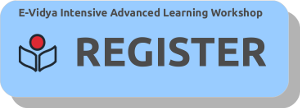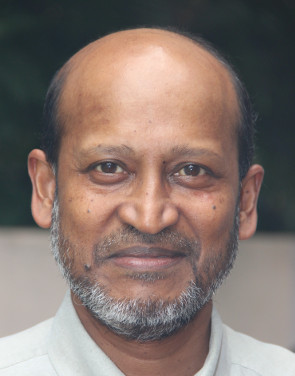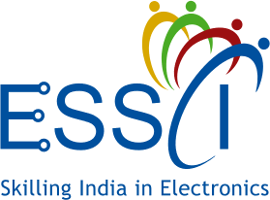A new chapter of collaboration begins.
Condensed deep-dive E-Vidya™ Workshop on
Artificial Intelligence & Machine Learning
This E-Vidya™ workshop will be conducted under the Advanced Technology Training Outreach Collaboration between the Electronics Sector Skills Council of India (ESSCI) and Terra Incognitus Systems Research Alliance (TISRA™), the originator of the E-Vidya™ project.
This workshop aims to be the defining foundational and exploratory workshop to enable participants from a variety of backgrounds to gain a lucid yet comprehensive overview of the entire landscape of AI & ML with deep dives into the key trending topics. Participant feedback and instructor's reflections on previous sessions of this workshop are available for reference.
The details of the workshop are as follows. The course brochure attached to this page provides a ready reference.
Workshop Details
- Subject: Artificial Intelligence & Machine Learning
- Type of Workshop: Condensed overview and deep dive into key topics
- Mode: Online live presentation with slides and interactive discussion through videoconferencing
- Instructor: Dr. Chandan Haldar
- Duration and Format: Total 9 hours, in 3 sessions of 3 hours each, everyday from 3.00 PM to 6.00 PM IST
- Dates: Fri 25 Sep 2020 - Sun 27 Sep 2020
Certification
The course is certified by the ESSCI under the Skill India mission. Each course participant will receive a personalized Certificate of Achievement.
Registration
- Registration is open.
- Registration closes at 10:00 PM IST on Thu 24 Sep 2020 or earlier if all available participant slots are filled.
- Seats are limited.
ESSCI Affiliated Institutions and Organizations
Please contact Sneh Birla at ESSCI for registration (Email: sneh@essc-india.org, Phone: +91 99113 24234) to get access to special low fees. The ESSCI webpage on the workshop may be accessed here: https://www.essc-india.org/deep-dive-workshop-on-artificial-intelligence-machine-learning/.
Instructor
Dr. Chandan Haldar is an applied computer scientist and an industry leader with several decades of research, development, and management experience in top academic institutes, global computer corporations, and deep technology start-up ventures.
He is alumni of IIT Kharagpur, IISc Bangalore, and the London Business School, with expertise in Artificial Intelligence and Machine Learning, Parallel and Distributed Computing, Functional Programming, and Embedded and Edge computing.
As CEO of Morphing Machines, Dr. Haldar has driven the high-level strategy of the path-breaking REDEFINE™ scalable power-optimizing reconfigurable massively parallel processor architecture and many-core SoC platform and data-flow computing driven accelerators for AI and Machine Learning and other High-performance Computing applications.
He is Chief Scientist at Terra Incognitus Systems Research Alliance (TISRA™) – a private research and development laboratory for deep technologies and breakthrough systems and software solutions. E-Vidya™ is a TISRA™ project.
Content and Structure
- Session 1. In the opening session, we begin with a wide ranging introduction to the history, context, and landscape of Artificial Intelligence and Machine Learning and their applications and place them in the context of the current AI wave and hype in the market. We cover selected mathematical and theoretical computer science topics that form the computational foundations of AI and ML. A variety of search and optimization algorithms are surveyed and explored as key models in classical algorithmic AI.
- Session 2. This session takes us through a variety of nature inspired models and algorithms for intelligent behaviour. We take multiple deep dives into the foundations of machine learning, supervised and unsupervised learning models, neural networks, deep learning networks, and a variety of widely used and effective neural architectures including CNN, RNN, LSTM, and entropy based networks, followed by learning methods including reinforcement learning, competitive learning, and transfer learning.
- Session 3. The final session takes a rapid overview of a variety of AI applications including text, speech, image, and video processing, object and face recognition, data and time-series analytics, robotics, autonomous vehicles, etc., followed by survey of AI tools, APIs, datasets, and software platforms that are most widely used in the industry, issues and directions in high-performance AI and ML including the use of multi-core CPUs, many-core GPUs, FPGAs, and new generation parallel computing hardware accelerators. We review the key challenges and limitations of AI, issues in ethical AI, explainable AI, and dangerous AI, recent directions in edge AI and IoT, and other emerging technologies, and finally conclude the session by reviewing practical career prospects and job opportunities in AI & ML.
Objectives and Take-aways
- To gain broad insight into the AI & ML landscape beyond the market hype
- To gain good understanding of the theoretical background, architectures, algorithms, platforms, APIs, and libraries for AI & ML solution development
- To gain good understanding of AI & ML application domains and challenges
- To gain pragmatic understanding of career prospects, current and emerging opportunities in AI & ML.
Who Should Attend
- Working technology professionals seeking to enhance their understanding of AI & ML
- Graduating students or recent engineering graduates aspiring for careers in AI & ML
- Team leaders and managers of industry projects that relate to AI & ML
- Senior managers and business leaders seeking a rapid and lucid overview of the vast AI & ML landscape
- Anyone seeking deep literacy of AI & ML and the professional and business opportunities that they open up.
Prerequisites
- Knowledge of basic undergraduate level science and mathematics is required.
- Familiarity with core computer science subjects is an advantage.
- Programming, solution development, or other relevant computing industry technical experience is an advantage.
- Some of the content may challenge participants with no background in computing or information technologies.
Ask E-Vidya™
Join the E-Vidya™ Workshops Channel on Telegram for announcements, alerts, and notifications regarding the E-Vidya™ Intensive Advanced Learning Workshops.

